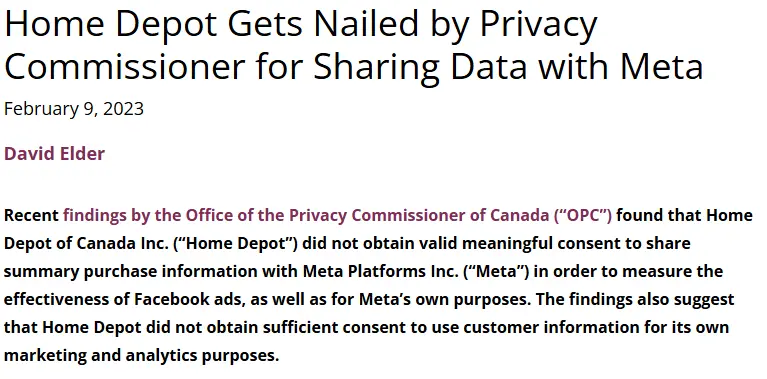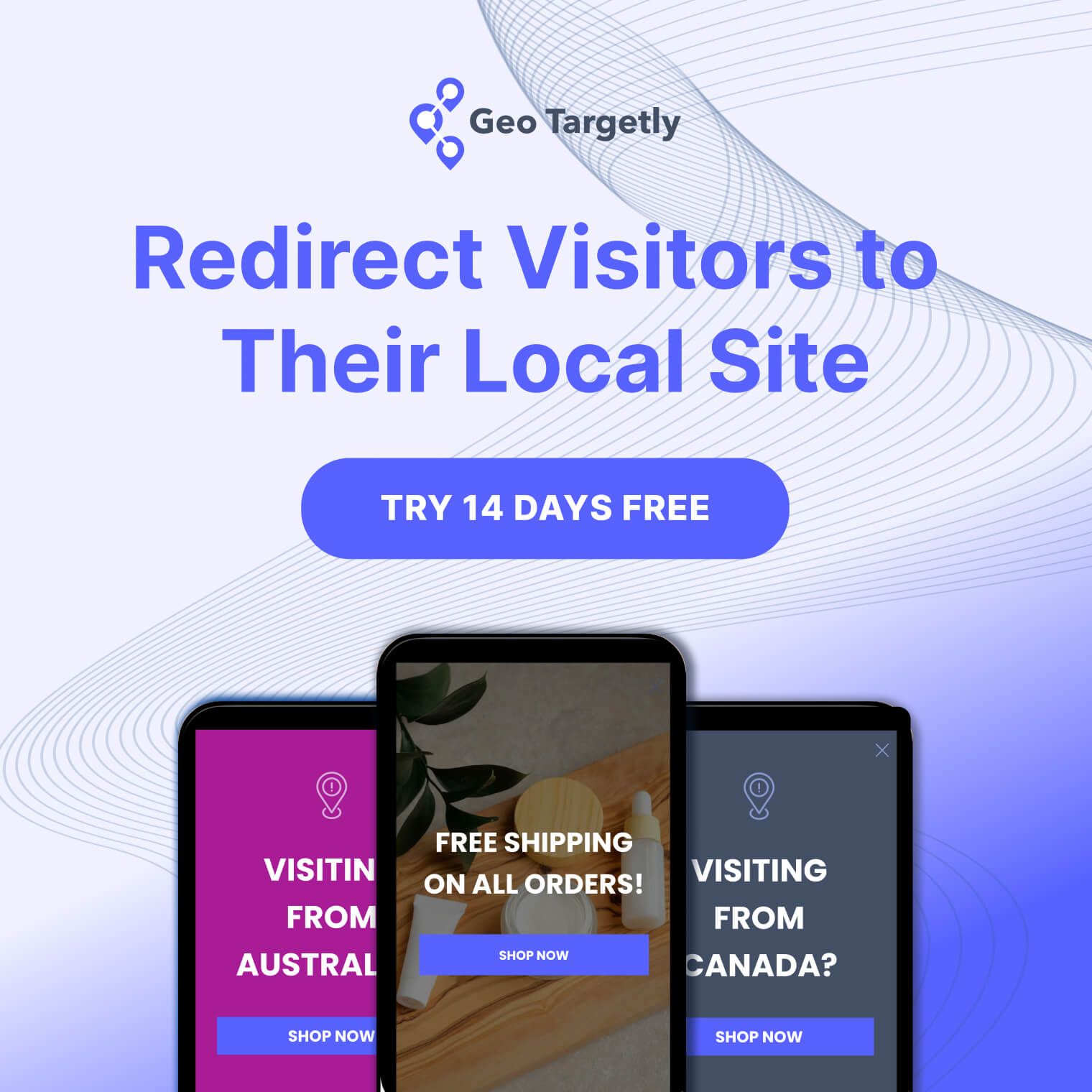

Key takeaways:
- PIPEDA applies to Canadian businesses and international companies that handle Canadian users’ data
- Compliance is built around 10 privacy principles: accountability, consent, security, and transparency
- Cookie consent rules differ from GDPR. Implied consent is sometimes allowed, but context matters
- Businesses must maintain clear privacy policies, verifiable consent records, and secure data handling
- Geo Consent by Geo Targetly simplifies cookie consent and record-keeping for Canadian users
- Upcoming changes (Bill C-27 / CPPA) will introduce stricter rules and higher penalties
PIPEDA compliance isn’t just a legal box to tick, it’s the foundation for how your business collects, stores, and uses personal data from Canadian customers.
In 2026, the Personal Information Protection and Electronic Documents Act (PIPEDA) continues to shape privacy standards for both Canadian and international businesses. Whether you run a SaaS platform, e-commerce store, or global enterprise, understanding PIPEDA is key to building trust and avoiding compliance headaches.
This guide breaks down who must comply, the 10 privacy principles, and the practical steps you can take to handle consent, cookies, and cross-border data transfers with confidence.
What is PIPEDA and who must comply?
The Personal Information Protection and Electronic Documents Act (PIPEDA) is Canada’s federal privacy law for private-sector organizations. It sets the rules for how businesses collect, use, and disclose personal information during commercial activities.
One key point: PIPEDA is a federal law, but some provinces (like Quebec, Alberta, and British Columbia) have their own privacy laws deemed “substantially similar.” In those provinces, local laws apply instead of PIPEDA, but only for intra-provincial activities. If data crosses borders or involves federal works (like banks or airlines), PIPEDA still applies.
PIPEDA also coexists with other regulations. For example:
- Quebec’s Law 25 imposes additional requirements, including stricter consent standards and privacy impact assessments.
- Ontario’s Personal Health Information Protection Act (PHIPA) applies to healthcare providers in the province.
Who must comply with PIPEDA?
PIPEDA applies to any private-sector organization that collects, uses, or discloses personal information in the course of commercial activity in Canada. This includes both Canadian companies and foreign businesses targeting Canadian users.
Here’s who falls under PIPEDA:
- E-commerce businesses selling to Canadian customers, even if based outside Canada
- SaaS platforms with Canadian users, especially if personal data is stored or processed
- Marketing agencies running campaigns that collect user data in Canada
- Retailers and service providers collecting customer information for transactions or loyalty programs
Even if your company is based in the US, UK, or elsewhere, if you're tracking Canadian users with cookies, sending promotional emails, or processing payments, you’re likely subject to PIPEDA.
One exception: nonprofits and political parties are generally exempt unless they engage in commercial activity. But if a nonprofit sells merchandise or runs a paid event, PIPEDA may still apply.
What about employee data?
PIPEDA also applies to employee information, but only in federally regulated industries like banking, telecommunications, and transportation. For example, if you're a developer at a telecom company, your employer must comply with PIPEDA when handling your HR records.
In other sectors, provincial laws typically govern employee data. For instance, a software startup in Toronto would follow Ontario’s rules for employee privacy, not PIPEDA. If your organization relies on a Canadian Employer of Record (EOR) provider like Rippling to manage global hiring or payroll, PIPEDA or the applicable provincial privacy laws still apply. Your business remains accountable for employee data handled by the EOR.
Understanding this distinction matters when designing internal systems or policies. If you’re building tools that manage employee data, check whether your industry falls under federal jurisdiction.
What are the 10 PIPEDA privacy principles?

PIPEDA is built on ten privacy principles that guide how organizations manage personal information. These principles are adapted from the Canadian Standards Association Model Code for the Protection of Personal Information. They set the expectations for transparency, security, and accountability in handling data.
The ten principles are:
- Accountability - Assign someone to be responsible for compliance and manage privacy practices. If your e-commerce platform uses a third-party email provider, you're still accountable for how that provider handles your customers’ data. You need clear agreements and internal processes to track and audit that responsibility.
- Identifying purposes - Clearly state why personal information is being collected before or at the time of collection. Say you're collecting ZIP codes to personalize product recommendations. You need to tell users that’s the reason, not just bury it in a general privacy statement.
- Consent - Obtain valid consent from individuals for the collection, use, or disclosure of their data. For example, collecting an email for a newsletter signup usually requires express consent. But if a customer provides their shipping address during checkout, implied consent may apply for order fulfillment.
- Limiting collection - Collect only the personal information needed for the stated purposes. If you're running a location-based campaign, asking for a full mailing address when a ZIP or postal code will do is excessive and non-compliant.
- Limiting use, disclosure, and retention - Use and share personal information only for the identified purposes and keep it only as long as necessary. For instance, if you collect data for a seasonal promotion, you can’t use that same data months later for unrelated marketing unless you get fresh consent.
- Accuracy - Keep personal information as accurate, complete, and up to date as possible. If you're using customer location data to personalize offers, outdated or incorrect data could lead to misdirected content, or worse: lost trust.
- Safeguards - Protect personal information with security measures appropriate to its sensitivity. For example, storing customer data in plain text or without encryption would fall short of this principle, even if access is limited internally.
- Openness - Make privacy policies and practices clear and easily available. A clear, plain-language privacy policy on your website is a good start, but it should be backed by accessible support channels for privacy inquiries.
- Individual access - Allow individuals to access their personal information and request corrections. If a user asks what location data you’ve collected through a geo-personalization tool, you need to provide that data and correct it if it’s inaccurate.
- Challenging compliance - Provide a simple process for individuals to question compliance with these principles. This means having more than a generic contact form. You need a documented process for handling privacy complaints, including escalation paths and response timelines.
These 10 principles form the backbone of PIPEDA compliance. They apply to everything from cookie tracking to CRM data to personalized web content. Each one ties directly into how you design data flows, write privacy policies, and build user experiences.
Key PIPEDA compliance requirements in 2026
PIPEDA affects how you collect, use, and protect personal information, so the rules need to show up in your day-to-day processes. Be clear with users about what data you’re collecting and why. Match the type of consent to the situation, express consent for sensitive data, implied consent when the risk is lower and users would reasonably expect it.
Keep your privacy policy accurate and easy to find, and explain how data is collected, stored, and shared. If you use cookies or analytics tools, tell people what you’re doing and keep a record of their choice. Have a process in place to respond to access, correction, or deletion requests within 30 days.
Security matters too. Use safeguards that fit the sensitivity of the information you handle, and if a breach could cause harm, report it quickly to both affected users and the Office of the Privacy Commissioner (OPC).
Example in action: A SaaS company serving Canadian customers might start by listing every place it collects personal data (such as in sign-up forms, support chats, and payment pages), and checking whether each one explains why the data is needed.
They could set up a simple consent log in their CRM, add a cookie banner that lets users choose what to allow, and run a quick security review to confirm that sensitive data is encrypted and only accessible to the right people.
PIPEDA compliance checklist
A structured checklist helps businesses systematically meet PIPEDA requirements and reduces the risk of gaps in privacy practices.
Key checklist items:
- Appoint a privacy officer - Assign accountability for privacy compliance across the organization.
- Map personal data - Identify what data is collected, where it is stored, and how it flows across systems.
- Publish a privacy policy - Clearly explain collection, use, disclosure, and retention practices for users.
- Implement a cookie consent mechanism - Capture and document user consent for tracking, analytics, and marketing purposes.
- Document consent records - Maintain verifiable records of consent for audits and compliance reporting.
- Handle access and deletion requests - Ensure processes are in place to respond to data subject access requests promptly.
- Conduct regular privacy audits - Review policies, procedures, and security controls to maintain ongoing compliance.
- Train staff - Educate employees on PIPEDA principles, consent handling, and data protection responsibilities.
- Review third-party contracts - Ensure vendors processing personal data comply with PIPEDA obligations.
PIPEDA cookie consent and website compliance
Cookies and other tracking technologies fall under PIPEDA when they collect personal information from Canadian users. Compliance depends on transparency, consent, and proper documentation.
Key points for website compliance:
- Express versus implied consent - Explicit consent is required for sensitive tracking, while implied consent may suffice for non-sensitive analytics, depending on context.
- Privacy notices - Websites must clearly explain what cookies are used, their purpose, and how users can manage them.
- Cookie banners - Must allow users to accept, decline, or customize preferences; default acceptance is not compliant for personal data collection.
- Common pitfalls - Auto-accept banners, vague language, and lack of record-keeping can lead to non-compliance.
- Difference from GDPR - PIPEDA does not require prior approval from a regulatory authority but still emphasizes meaningful consent and documentation.
What counts as personal data under PIPEDA?
Cookies often track more than just preferences. They can log IP addresses, device IDs, and behavioral patterns. Under PIPEDA, these can qualify as personal information if they can be linked to an identifiable individual. That includes:
- IP addresses tied to user accounts
- Location data from mobile browsers
- Behavioral profiles built from session data
If your analytics tool builds user profiles based on browsing history and location, and those profiles are tied to a unique identifier, you're collecting personal data under PIPEDA. That means you need consent.
How to obtain meaningful cookie consent
PIPEDA requires “meaningful consent,” which means users must understand what data you're collecting, why you're collecting it, and how it will be used. Blanket statements or pre-checked boxes don’t meet the bar.
To comply:
- Use clear, plain language: Avoid legalese in your cookie banners. Say what you track and why.
- Offer real choice: Let users accept or reject non-essential cookies. Don’t bundle consent for multiple purposes.
- Make consent granular: Separate analytics, marketing, and personalization cookies. Let users toggle each category.
- Allow easy withdrawal: Users should be able to change their cookie preferences at any time.
Sector-specific guidance (healthcare, e-commerce, SaaS)
PIPEDA compliance can vary depending on the industry, particularly when handling sensitive or cross-border data. Tailoring privacy practices ensures both regulatory alignment and user trust.
PIPEDA vs GDPR: Key differences
While PIPEDA and the General Data Protection Regulation (GDPR) share the goal of protecting personal information, they differ in scope, consent requirements, and enforcement. Understanding these differences helps global businesses align with both frameworks.
Top distinctions:
- Consent definitions - GDPR requires explicit, informed consent for all personal data processing, while PIPEDA allows implied consent in certain low-risk scenarios.
- Data transfer rules - GDPR restricts transfers outside the European Economic Area without adequate safeguards; PIPEDA focuses on transparency and contractual safeguards for cross-border data.
- Fines and enforcement - GDPR can impose fines up to 20 million euros or 4% of global revenue; PIPEDA enforcement involves audits, recommendations, and potential reputational impact, with penalties generally lower.
- Data subject rights - GDPR includes the right to be forgotten and data portability, whereas PIPEDA emphasizes access, correction, and challenging compliance.
- Alignment tips for global companies - Map overlapping obligations, standardize consent collection, and use tools that document and manage cross-jurisdiction compliance.

Real-world enforcement examples
Looking at real cases is one of the best ways to understand what the OPC expects and where businesses often go wrong.
Home Depot & Meta (“Offline Conversions” tool)

Home Depot got into trouble for sharing customer emails and purchase info with Meta so they could measure ad performance.
The problem? Customers weren’t told this would happen, so their consent wasn’t valid. The OPC ruled that purchase data given for receipts couldn’t be used for marketing analytics without clear, express consent.
Lesson: Don’t assume implied consent covers marketing or analytics. If you’re using data for anything beyond the original purpose, you need to explain it clearly and get permission.
Facebook / Cambridge Analytica case

This case went all the way to the Federal Court of Appeal in 2024. The court agreed that Facebook violated PIPEDA by not getting “meaningful consent” when an app collected user data (and their friends’ data) for purposes most people wouldn’t expect.
Lesson: Broad, vague privacy policies aren’t enough. Consent has to be specific and easy to understand.
MGM Resorts data breach

A cloud server breach exposed personal data for millions of hotel guests, including about 1.9 million Canadians. The OPC found that MGM waited too long to assess whether the breach posed a “real risk of significant harm” and to notify Canadians or the OPC.
Lesson: If Canadians’ data is involved in a breach, you need to quickly decide if it meets the RROSH standard and notify both the OPC and affected users “as soon as feasible.” Delays create legal and reputational risk.
Together, these examples show that compliance is about more than having a privacy policy. You need clear consent, accurate disclosures, secure systems, and a plan for when things go wrong.
Cross-border data transfers: What you must know
Transferring personal data outside Canada triggers specific PIPEDA obligations. Businesses must ensure transparency, implement safeguards, and maintain accountability for international data flows.
Key considerations:
- Definition of a data transfer - Any movement of personal information to foreign servers, cloud services, or third-party vendors counts as a transfer.
- Due diligence on third parties - Contracts should outline security measures, purpose limitations, and compliance obligations for overseas partners.
- Transparency for users - Privacy policies must disclose where data is sent, why, and what protections are in place.
- Cross-border consent - Obtaining clear consent for international processing can reduce regulatory risk, especially for marketing and analytics data.
- Ongoing monitoring - Regular audits of vendors and storage locations help detect potential compliance gaps and evolving risks.
Documenting these steps not only meets PIPEDA requirements but also builds user trust for global audiences.
How to future-proof for upcoming changes (Bill C-27 / CPPA)
Canada is updating its privacy framework with Bill C-27, introducing the Consumer Privacy Protection Act (CPPA), which will modernize and strengthen PIPEDA obligations. Preparing now reduces future compliance risks.
Key points for businesses:
- Expanded individual rights - CPPA introduces the right to data portability and enhanced deletion rights beyond current PIPEDA access and correction rules.
- Stricter consent rules - Expect more explicit requirements for obtaining and documenting consent, including for analytics and marketing cookies.
- Higher penalties - Non-compliance can result in fines up to 5% of global revenue or 25 million Canadian dollars, emphasizing proactive governance.
- Cross-border considerations - CPPA emphasizes accountability for transfers to foreign entities, requiring contractual safeguards and transparent disclosures.
- Action steps now - Review privacy policies, map data flows, update consent collection mechanisms, and establish audit processes to align with forthcoming rules.
Future-proofing helps businesses adapt quickly when CPPA comes into force and demonstrates a commitment to privacy to Canadian and international customers.
Conclusion
PIPEDA compliance is an ongoing process, not a one-time project. By mapping your data flows, documenting consent, and regularly reviewing privacy policies, you reduce legal risk and show customers that you take their data seriously.
With Bill C-27 set to introduce the CPPA and tougher penalties, now is the time to strengthen your privacy practices. Start with a simple audit of how you collect and use data, then implement clear consent mechanisms and vendor agreements that meet today’s requirements, and tomorrow’s.
Next step: Make compliance easier with Geo Targetly. Geo Consent automates cookie consent, keeps records for audits, and works across multiple sites so you stay aligned with PIPEDA and upcoming CPPA rules without adding extra manual work.
Frequently asked questions
Is PIPEDA the same as GDPR?
No. PIPEDA is Canada’s federal privacy law, while GDPR applies to the European Union. PIPEDA allows implied consent in some cases and has different enforcement and data transfer rules.
What does PIPEDA say about cookies?
Cookies that collect personal information require clear consent. Businesses must disclose purpose, type of data collected, and retention practices. Express or implied consent depends on risk level.
Do I need consent for analytics tools in Canada?
Yes, if the tools track personal information. PIPEDA requires that users understand what data is collected and how it is used.
What is the penalty for not complying with PIPEDA?
Penalties include compliance recommendations from the Office of the Privacy Commissioner, audits, public notices, and potential reputational damage. CPPA will introduce higher fines for violations.
How can Geo Consent help with compliance?
Geo Consent by Geo Targetly simplifies cookie consent management for Canadian users. It provides geo-targeted banners, records consent, and helps align with PIPEDA’s express consent requirements.





.webp)


































